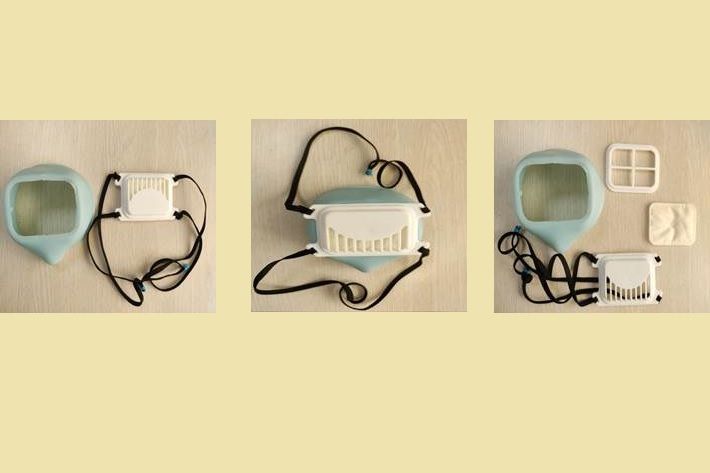
Apart from preventing COVID-19 infections, the mask can be used by workers in different industries where they are exposed to high volumes of dust like cement factory, brick kilns, cotton factories and pain industries. It can be modified according to the requirement by changing the filter configuration according to the place in which it will be used and can help prevent severe lung diseases such as silicosis. A trademark and a patent have also been filed for the mask called Nano Breath, the Indian ministry of science and technology said in a media release.
A 4-layer filtration mechanism has been provided in the mask wherein the outer and first layer of the filter is coated with nanoparticles. The second layer is a high-efficiency particulate absorbing (HEPA) filter, third layer is 100 µm filter and fourth layer is a moisture absorbent filter.
Dr. Atul Thakur, Dr. Preeti Thakur, Dr. Lucky Krishnia, and Prof P B Sharma, Dinesh Kumar research scholar from Amity University Haryana (AUH) and Prof Rakesh Srivastava from University of Nebraska, US have jointly developed this product that has immense potential as a prophylactic.
A Zetasizer Nano ZS, a facility supported by ‘Fund for Improvement of Science & Technology Infrastructure’ (FIST) project of the Department of Science & Technology (DST), government of India which enables high temperature thermal analysis for ceramic materials and catalysis applications, has been used to carry out this work. It is a high performance, versatile system for measuring particle size, zeta potential, molecular weight, particle mobility and micro-rheology.
Fibre2Fashion News Desk (KD)

